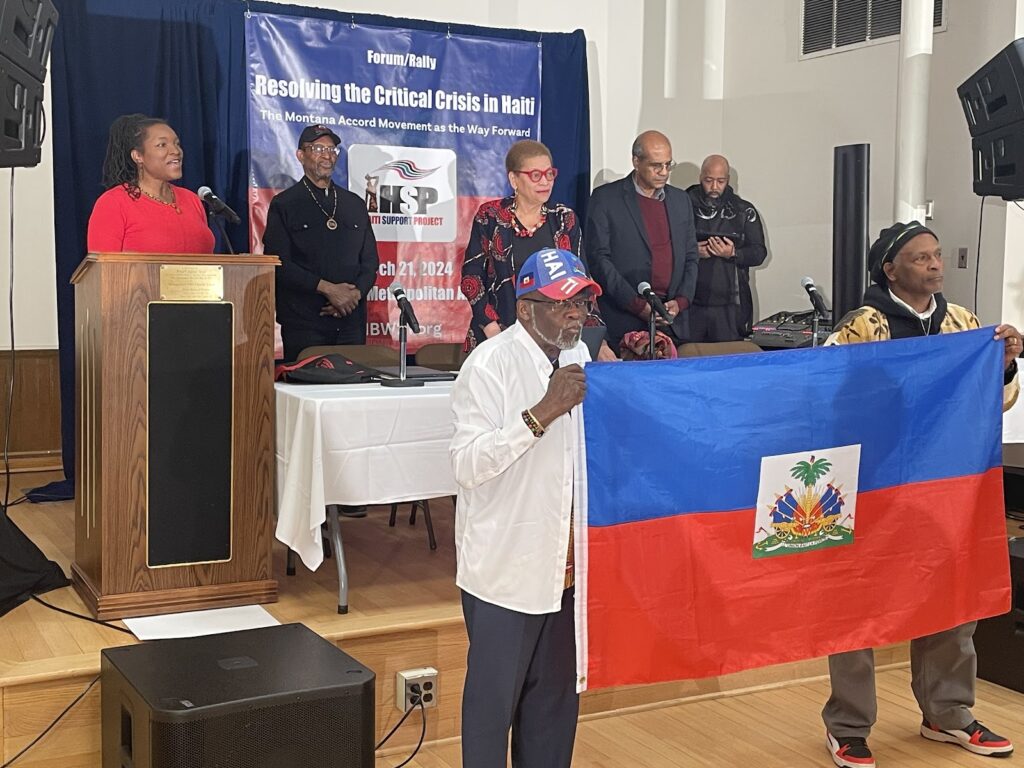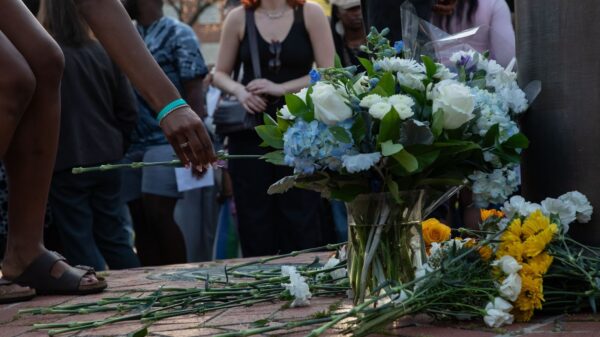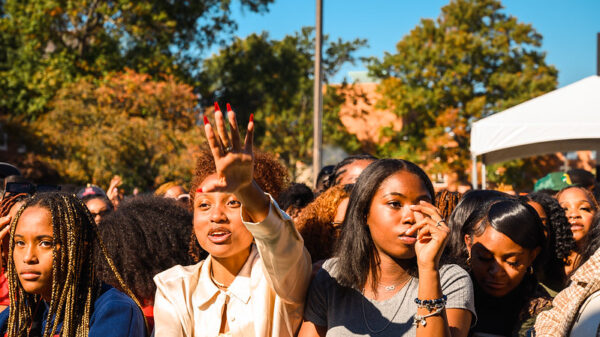
Internationally known as the first free Black republic in the world, Haiti, the nation formerly known as Ayiti, was once the richest European colony and nation in the Western Hemisphere and is now the poorest nation there, according to the World Population Review.
Impacted by both earthquakes that plagued the nation in 2010, 2018 and 2021 and the political instability that has struck Haiti since the assassination of Jovenel Moïse, the nation’s 43rd president, on July 7, 2021, members of civil society across the U.S. are focused on supporting Haiti and its population.
On March 21, the Institute of the Black World 21st Century (IBW) convened at the Metropolitan African Methodist Episcopal (AME) Church in Washington, D.C. to galvanize U.S. citizens and members of the international community to support the Haiti Support Project.
Led by Dr. Ron Daniels, the Haiti Support Project has spent the previous three decades working to build a constituency that can work collaboratively with the Haitian population.
“Our rally is against the backdrop of one of the worst crises in Haiti that I have observed in the 29 years that we’ve been working there,” Daniels said.
After Moïse’s death, Ariel Henry served as acting prime minister and acting president of the nation. He announced his resignation on March 12, according to the Associated Press.
“Henry was supposed to stay in office for about three months. That ended up being extended into almost three years, against the backdrop of people demanding change,” Daniels said.
Joseph Sturgeon III is a senior history major and Caribbean studies minor at Howard University from Fort Lauderdale, Florida, by way of Omaha, Nebraska. Sturgeon’s maternal family originates from the Northwest province of Haiti.
“My reaction, to put it plainly, was just disappointment. I feel the Haitian situation just seems to reverberate as it has in history,” he said.
Jocelyn McCalla, the executive director of the National Coalition for Haitian Rights (NCHR), was a member of IBW’s panel at the convening and shared insight with those in attendance.
“The truth is that we are witnessing the total collapse of U.S. foreign policy. Make no mistake about it, it was badly engineered,” McCalla said. “The U.S. failed to listen to the voices of reason that emerged to make sure that this was not going to happen.”
Daniels said that the rally and campaign to support the Montana Accord movement is about education and members of the African diaspora and allies getting firsthand information about what’s transpiring in Haiti and what will happen moving forward.
“That’s why we must align ourselves with this powerful movement and seek to shift U.S. policy. Congressman Gregory Meeks saying that we ‘need a Haitian-led solution and the U.S. must follow the people of Haiti and respect the sovereignty of the nation’ is invaluable,” Daniels said.
Meeks is currently a ranking member of the U.S. House Foreign Affairs Committee after serving as chairman between 2021 and 2023. He has declared his support for the Montana Accord and a political resolution led by Haiti. Meeks defended Haiti from Rep. Mike Collins, who called the country a ‘sh*thole,’ according to Politico.
The Montana Accord, also known as the Aug. 30, 2021 Agreement, is a movement led by the Commission to Search for a Haitian Solution to the Crisis (CRSHC). The CRSHC was created on March 6, 2021, as an initiative of many committed civil society organizations during a Civil Society Forum. The agreement is the first to seek a Haitian solution to the crisis that Haiti has been undergoing since July 2018.
“The Montana Accord came out of about nine months of roundtable discussions and meetings to create a consensus on what a transition should look like in Haiti. A nine-member Presidential transition council has been submitted to CARICOM, who has been facilitating the negotiation among the parties in Haiti now for about a year,” Melinda Miles said.
Miles is a Miami-based coordinator of the Haiti Response Coalition, a cross-sector platform for different organizations that work in Haiti. The group focuses on sharing information and taking collaborative action to enable stakeholders to serve and improve Haiti.
“The coalition is based on a human rights approach,” Miles said.
Miles said that some of the mainstream media narratives about gang activities in Haiti are problematic because they tend to misleadingly paint the entire country or capital city of Port-au-Prince as being in chaos.
“The gangs are certainly connected to former and current political leaders as well as private sector stakeholders. The outcome is fighting between gangs aligned with government interests versus gangs aligned with private sector interests, and that has been driving these devastating and brutal ongoing battles,” Miles said.
Miles said that during his administration, Henry progressed into a ‘one-man-rule’ style of leadership, as he put together a cabinet where he served as minister of multiple government divisions. Other individuals served as more than one minister as well.
Articles 134 and 137 of the 1987 Constitution of the Republic of Haiti uphold that the president is elected and serves as head of state, while the prime minister is the leader of the government that is appointed by the president and approved by parliament. Miles said that when Moïse was assassinated, there were only 10 other elected officials left within the entire country.
Haiti’s democratic institutions have been systematically dismantled since the earthquake in 2010, according to The Guardian. Whereas the city of Port-au-Prince normally would have elected a mayor, that office has been appointed in recent years.
Daniels said that less than 20 percent of Haitians participated in the last election, indicating that the current regime of government leaders won the majority of about one-fifth of the Haitian population. The International Foundation for Electoral Systems declared that the average voter turnout in Haiti is 29.72 percent, with 19.2 percent of the population voting in the 2016 Presidential election.
“The most important thing about the Montana Accord is that it’s a huge step forward towards a Haitian vision for what governance should look like in Haiti, which has not been the trend historically. Haiti has experienced a lot of imposed governance and democracy modeled after the U.S., but its culture and infrastructure are different,” Miles said.
Jailin Boehm, a Dallas freshman history major and political science and film double minor at Howard University, shared his thoughts about the ongoing situation in Haiti.
“The U.S. government has had little direct involvement in aiding the population, yet it has been surveilling the government’s political situations for the past three years,” he said.
Boehm, whose family is of Louisiana Creole descent, said that populations in the U.S. share a special relationship and culture with Haiti due to acts of resistance that were inspired by the Haitian Revolution between 1791 and 1804.
He also said that resistance efforts by formerly enslaved and colonized Haitians catalyzed the 1811 German Coast uprising, also known as Andry’s Rebellion, which was the largest ‘slave’ uprising in U.S. history.
During the revolt, between 400 to 500 enslaved individuals fled their plantation and organized into a militia where they killed slave owners to free Louisiana from American and French slaveholders.
“Haiti has always been in hard times, but let’s not forget that it was occupied by the U.S. Army for more than 30 years. A large percentage of the population is fleeing east to the Dominican Republic, only to be turned away due to discrimination, while we know that a large portion of the population is going hungry due to food shortages,” Boehm said.
After Haiti fought for and obtained its independence from France in the 19th century, it contended with Britain and the U.S. throughout the next two centuries as each Western nation sought to occupy or intervene in the Caribbean nation’s political and economic affairs, according to The Washington Post.
The U.S. military and its allies or affiliates have maintained a presence in Haiti for at least 41 of the last 108 years “in the name of securing peace, political stability and human rights,” yet to no avail, according to Jonathan Katz.
With environmental issues impacting the island, climate change is also affecting local production in Haiti, and there are large numbers of Haitians enduring famine, according to the Integrated Food Security Phase Classification (IPC).
On March 1, 2024, the World Food Programme (WFP) reported that approximately 7.8 million people in Haiti are estimated to have insufficient food consumption in February 2023, which indicates that the situation deteriorates again after slight improvement observed in January 2024. Approximately 440,000 people endured insufficient food consumption in mid-February 2024 as opposed to January 2024, according to the WFP.
“The number of Haitians who are hungry is just astronomical. We’re not seeing that kind of situation anywhere else in this hemisphere, and the World Food Programme is sounding the alarm about that every single day,” Miles said.
Sturgeon said he envisions a future where Haiti is sovereign and free of imperialism and believes that Howard students and members of the international community can show international solidarity for the nation by remembering its origin.
“People should remember Haiti culminated in the first Black Republic after a slave revolution and was essentially pan-Africanist in nature before the term ‘pan Africanism’ was coined. This hard-fought for sovereignty has also been stamped on for over 220 years,” Sturgeon said.
Boehm echoed Sturgeon’s sentiments and discussed the role of the nation.
“Haiti is the first free Black nation in the Western world and because of that, the country has historically been viewed as a threat by Western nations. Haiti [remains] as this crystallized nation with a majority Black population, Haitian Creole is a large language and the nation is definitely a testament to what Black people can achieve,” Boehm said.
Considering the narrative of gang violence and activity, McCalla and Miles said that international stakeholders should be aware of how the transitional government will work with ‘so-called’ gangs and paramilitary groups, especially considering their origins. Human rights defenders urge everyone to consider processes of working with former members of armed groups.
“When we look at solving these problems, there has to be justice and reconciliation with people who’ve been part of armed groups, because many young people have gotten pulled into this. There are entire generations of traumatized kids who haven’t experienced one normal year of education because they started missing school during pandemic lockdowns,” Miles said.
McCalla called attention to the origins of youth-led gangs, highlighting the relationship between gangs and the politicians and corporations that sponsor their activities.
“That repression of peaceful demonstrators was carried out both by the police and military allies. Part of the reason why there’s been a rise in the use, or the appearance of ‘criminal gangs’, who are now turning into criminal insurgents, is primarily because, to some extent, they were aided and abetted by the people who were in power,” McCalla said.
The U.S. Department of State has issued a level 4 travel advisory for Haiti and is advising U.S. citizens not to travel to the nation due to high levels of political instability and gang violence.
Copy edited by Jalyn Lovelady









